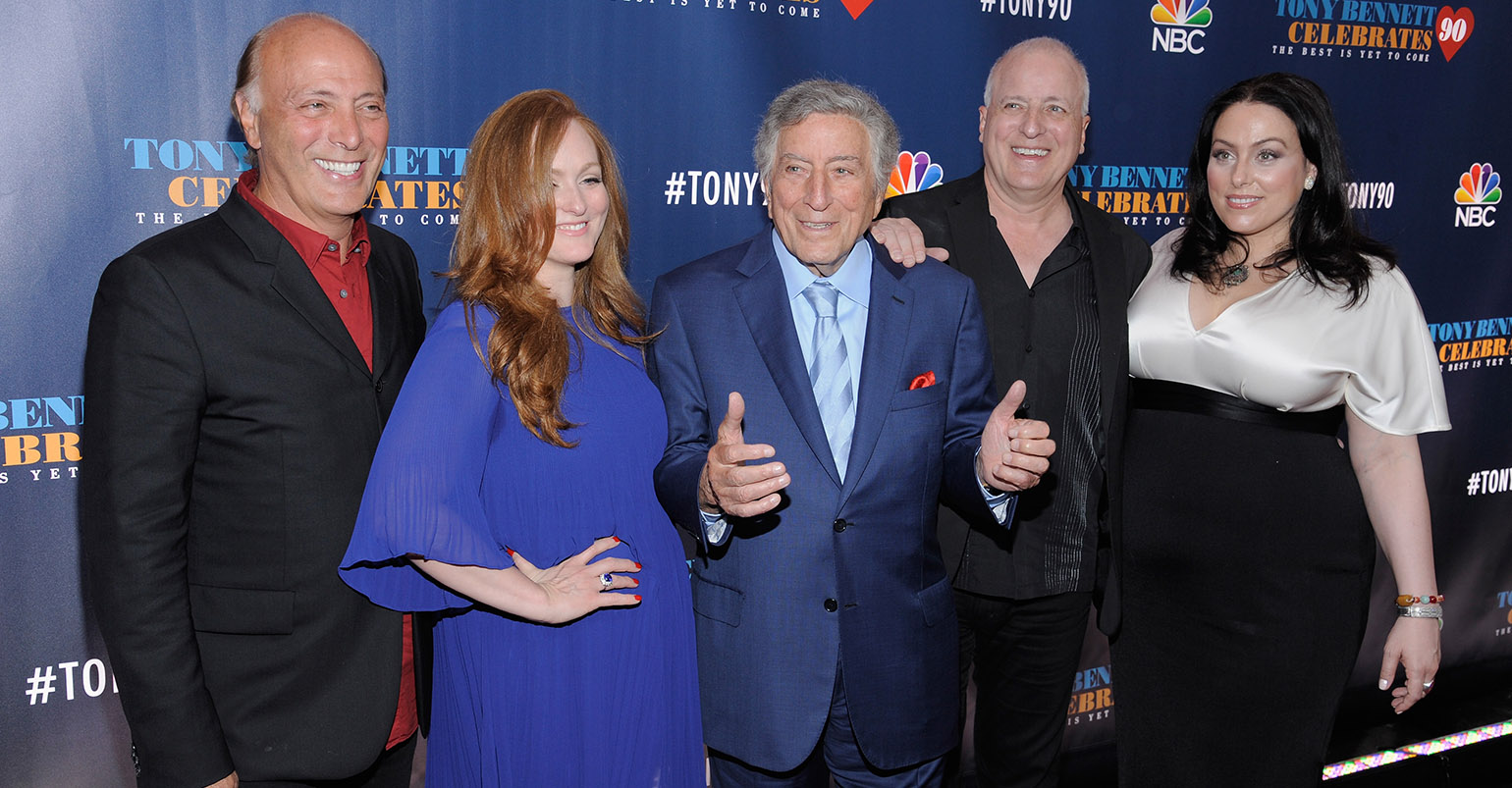The late Grammy Award-winning singer Tony Bennett's two daughters, Antonia and Johanna Bennett, are suing their brother over their father's estate. In his capacity as trustee of Tony's estate, Danny Bennett is accused of withholding information about Tony's assets and failing to account for sales of his music catalog and image rights income. The two sisters are seeking equitable relief and a full accounting of all property and assets of the estate and trust.
According to the family trust, upon Tony's death, all tangible personal property will be distributed equally among his four children (Dan and his brother Daegal are Tony's sons from his first marriage). Danny, the oldest of the four, was appointed trustee of Tony's trust and served as his manager for a long time. Daegal and Tony's widow, Susan Benedetto, were also named in the lawsuit.
Shady business?
In addition to personal and real estate, an artist of Bennett's caliber typically leaves behind other valuable assets such as music catalogs and image and likeness rights. Rolling Stone reports that the lawsuit states that while earnings from live performances alone during the last 15 years of their father's career totaled more than $100 million, the sisters were told that Toni's fortune was valued at less than $7 million. The complaint alleges that “(a)lthough Danny and his attorney have provided partial information and submitted several documents to petitioners' attorneys, the information provided raises more questions than answers and provides nothing close to an accounting of assets and Tony's financial affairs. ” Further, he alleges that Danny personally profited from the estate, including selling memorabilia.
Is an Independent Administrator the solution?
Although it is common to appoint a family member as trustee, Bennett's lawsuit raises the question of whether an independent trustee is ever a better option to avoid family drama and disputes. “It is not unusual to appoint a child in turn to act as trustee during the administration period. But it's almost always a bad idea to appoint a child as continuing trustee for another child or children after the trusteeship period has ended,” said Neil Solarz, shareholder/principal at Weinstock Manion. “Given the dynamics and existence of this lawsuit, it is highly likely that a judge will mandate an independent trustee, whether a private fiduciary or a corporate trustee, as a viable solution,” he added.
Solarz also explained that after an accounting of the deceased's estate, if the accounting is “large enough” or there is an indication that, for example, Danny may have acted in bad faith, mismanaged assets or unjustly enriched himself, his daughters can file a petition to remove their brother as trustee (assuming they haven't already done so).
“This lawsuit is a prime example of the issues we frequently encounter in probate trust litigation. A child is chosen as a trustee for his financial ability or perceived ability to handle a complex process. However, this often leads to envy or disagreements between family members and, subsequently, to legal action,” Solarz said. “If a child is the ongoing administrator, it can create an overwhelming amount of tension between siblings, as the remaining sibling may find it humiliating to ask the sibling's permission to enter their trust going forward.”

